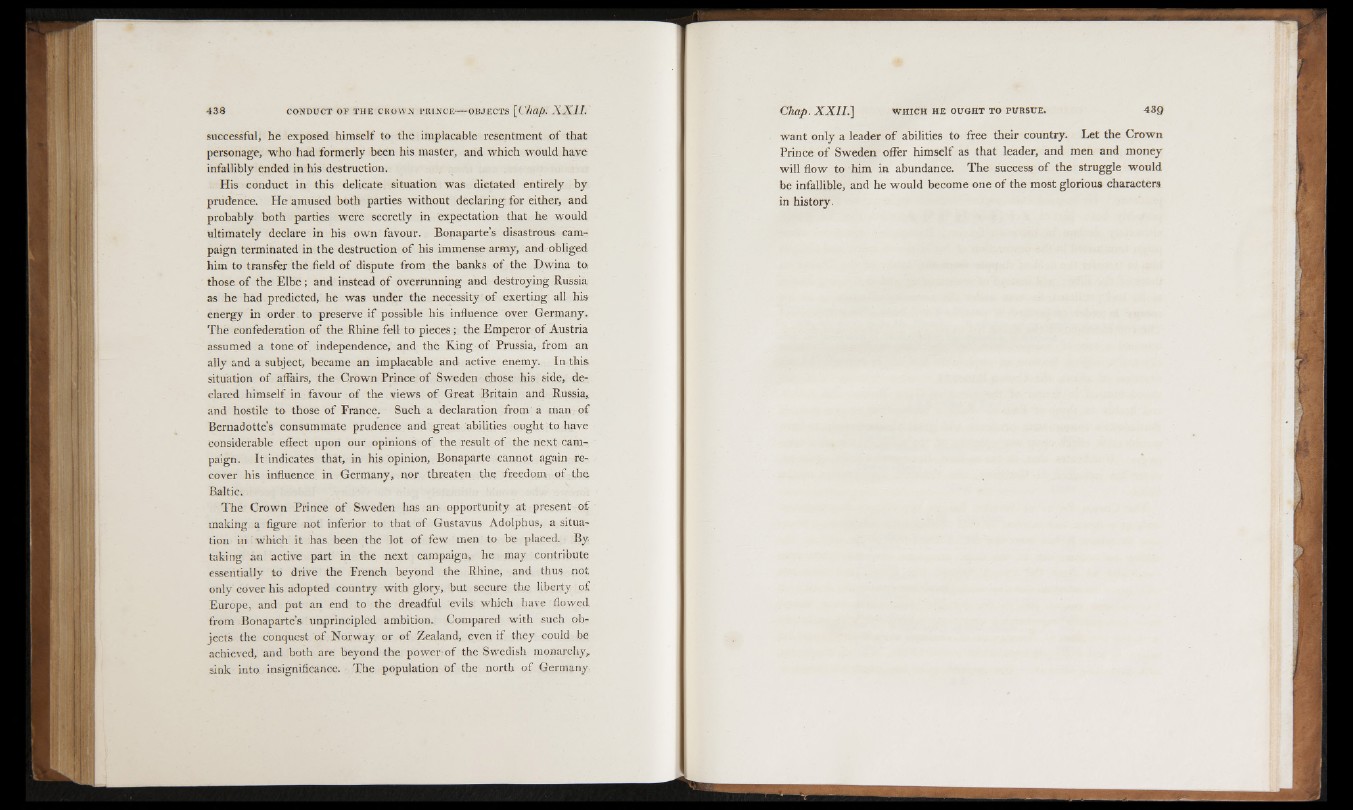
successful, he exposed himself to the implacable resentment of that
personage, who had formerly been his master, and which would have
infallibly ended in his destruction.
His conduct in this delicate situation was dictated entirely by
prudence. He amused both parties without declaring for either, and
probably both parties were secretly in expectation that he would
ultimately declare in his own favour. Bonaparte’s disastrous, campaign
terminated in the destruction of his immense army, and obliged
him to transfer the field of dispute from the banks o f the Dwina to
those o f the Elbe; and instead o f overrunning and destroying Russia
as he had predicted, he was under the necessity o f exerting all his
energy in order to preserve i f possible his influence over Germany.
The confederation o f the Rhine fell to pieces; the Emperor of Austria
assumed a tone of independence, and the King o f Prussia, from an
ally and a subject, became an implacable and active enemy. In this
situation of affairs, the Grown Prince o f Sweden chose his side, declared
himself in favour o f the views of Great Britain and Russia,
and hostile to those of France. Such a declaration from a man of
Bernadotte’s consummate prudence and great abilities ought to have
considerable effect upon our opinions o f the result of the next campaign.
It indicates that, in his Opinion, Bonaparte cannot again recover
his influence in Germany, nor threaten the freedom o f the
Baltic.
The Crown Prince of Sweden has an opportunity at present of
making a figure not inferior to that of Gustavus Adolphus, a situation
in which it has been the lot of few men to be placed. By
taking an active part in the next campaign, he may contribute
essentially to drive the French beyond the Rhine, and thus not
only cover his adopted country with glory, but secure the liberty of
Europe, and put an end to the dreadful evils which have flowed,
from Bonaparte’s unprincipled ambition. Compared with such objects
the conquest of Norway or of Zealand, even if they could be
achieved, and both are beyond the power-of the Swedish monarchy,
sink into insignificance. The population o f the north of Germany
want only a leader of abilities to free their country. Let the Crown
Prince of Sweden offer himself as that leader, and men and money
will flow to him in abundance. The success of the struggle would
be infallible, and he would become one of the most glorious characters
in history.